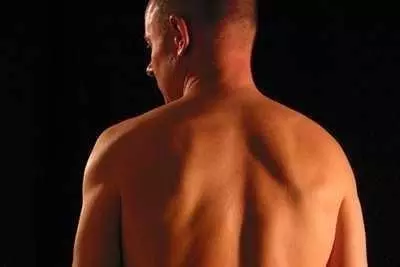Sit out herniated disc? Is this a good idea?
Everyone has heard of a herniated disc. The rumor keeps coming up that patients can simply sit out the herniated disc - especially in times of the Corona crisis, when nobody wants to go to the doctor. We explain here whether this is possible and when a disc operation is necessary.
The herniated disc: symptoms and possible consequences
Most people have had back pain at one or more times in their lives. Fortunately, intensive treatment is rarely required; instead, the symptoms disappear on their own within a few weeks. If the problem has not subsided after a month, it is advisable to see a doctor to rule out a herniated disc.
Symptoms do not always appear with a herniated disc. If they do, symptoms that differ from the typical pain of neck tension or cramps quickly appear. The muscles appear hardened in the affected area of the spine, the back pain is intense and stabbing.
Depending on the area of the spine affected, other symptoms may include:
- neck, head, arm or leg pain;
- tingling or numbness in your arm or legs;
- and increased discomfort when sneezing or coughing if the cervical spine is affected.
Should I sit out the herniated disc or have an operation?
Even if it hurts, disc surgery is not always necessary. Instead, most patients are helped by a combination therapy of heat, exercise, and painkillers. As soon as possible, the doctor will mobilize you again, for example through physiotherapy. If these conservative means do not help, you should visit a clinic.
Especially in the case of signs of paralysis, numb limbs or bladder emptying disorders, this can be an emergency that requires immediate surgical treatment. Doctors then speak of the so-called paraplegic syndrome, which can be triggered by a herniated disc caused by a pinched spinal cord. Without a disc operation, permanent paralysis or sensory disturbances can occur.
However, if this is not the case, conservative therapy is the most sensible starting point. With physiotherapy you can get used to everyday movements again, heat and movement support muscle building. Anti-inflammatory drugs, injections and painkillers make your therapy easier. So you can't necessarily sit out a herniated disc, but you can treat it well.
Apex Spine: How the specialist clinic helps with a herniated disc
Disc surgery can be done in a number of ways. In a minimally invasive procedure, the doctor may inject an anti-inflammatory and decongestant directly into the affected area through a spinal catheter. During the surgical procedure, a spinal surgeon can remove the disc tissue either openly through a posterior approach under general anesthesia or (as favored in the Apex Spine Center) endoscopically from the side under local anesthesia through a small stab incision.
However, a specialist clinic can also help with conservative treatment. After immobilization in the acute phase, you can draw up an individual training plan together with the doctor, usually with the advice of a physiotherapist. The back and abdominal muscles are stabilized and strengthened slowly and while protecting the spine.
As specialist centers for spinal surgery, the Apex Spine Clinics are the best places to go for patients with herniated discs. Internationally recognized specialist surgeons contribute their experience from numerous previous operations and have partly developed the applied methods themselves. The goal at the Apex Spine Clinic is always to maintain natural mobility and stability so that life can go on as usual even after the herniated disc.

